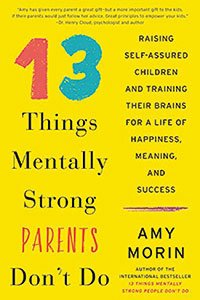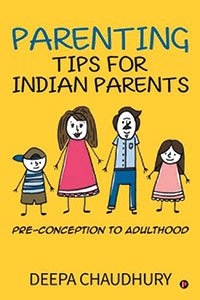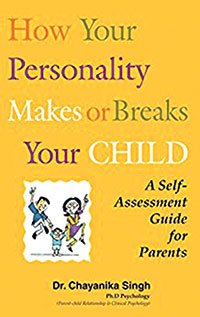3 Useful parenting books
 13 Things Mentally Strong Parents Don’t Do
13 Things Mentally Strong Parents Don’t Do
by Amy Morin
Publisher: HarperCollins
Price: Rs.499
Foster parent, psychotherapist and parenting expert, US-based Amy Morin has drawn on her knowledge and experiences to write 13 Things Mentally Strong Parents Don’t Do, an excellent collection of case studies, practical advice, and proven exercises to help parents nurture children into healthy and confident adults. Morin advises parents to be mentally and emotionally strong to guide children through their struggles and fears.
Among the 13 things parents should refrain from doing is encouraging victimhood in children and allowing them full control over their lives. She counsels parents to encourage children to turn their weaknesses into strengths, and empower them to make appropriate choices while respecting the parent-child hierarchy.
 Parenting Tips for Indian Parents
Parenting Tips for Indian Parents
by Deepa Chaudhury
Publisher: Notion Press
Price: Rs.299
What is the right age to buy your child a mobile phone? How expensive should the mobile phone be? What is the right age to allow teens to drink alcohol? Which type of schooling is best — alternative or air-conditioned?
In the Google age, parenting is becoming increasingly complex. In Parenting Tips for Indian Parents, counselor Deepa Chaudhury addresses the issue of parenting in the new social media-driven age. She divides children’s growth into several categories — physical, emotional, and cognitive and offers insights into practical age-appropriate parenting.
A former child welfare activist and high school teacher Chaudhury draws on her own parenting and teaching experience to provide parents useful child rearing advice.
How your Personality Makes or Breaks your Child — A Self Assessment Guide for Parents
 by Chayanika Singh
by Chayanika Singh
Publisher: Unicorn Books
Price: Rs.175
This book will help parents introspect about their own parenting shortcomings and weaknesses. The author believes that parents can successfully manage their children’s behaviour only when they are in control of their own anger and resentments.
There are innumerable ways in which a parent’s personality and characteristics, both positive and negative, shape their children’s behaviour and attitudes.
Author and psychologist Chayanika Singh successfully argues that parents who are aware of their strengths and weaknesses, are better equipped to help children to cope with their growing-up problems and vulnerabilities.















Add comment